
Ever since China ratified the Paris agreement, Hong Kong is under the spotlight to align with the global agenda and respond to the increasing stakeholders’ demand on sustainability effort. The Hong Kong government and the industries have been working towards a number of initiatives in enhancing Corporate Social Responsibility (CSR). This article aims to give an overview of the history and current CSR development in Hong Kong.
Below is a brief timeline of Hong Kong’s sustainability milestones in recent years:
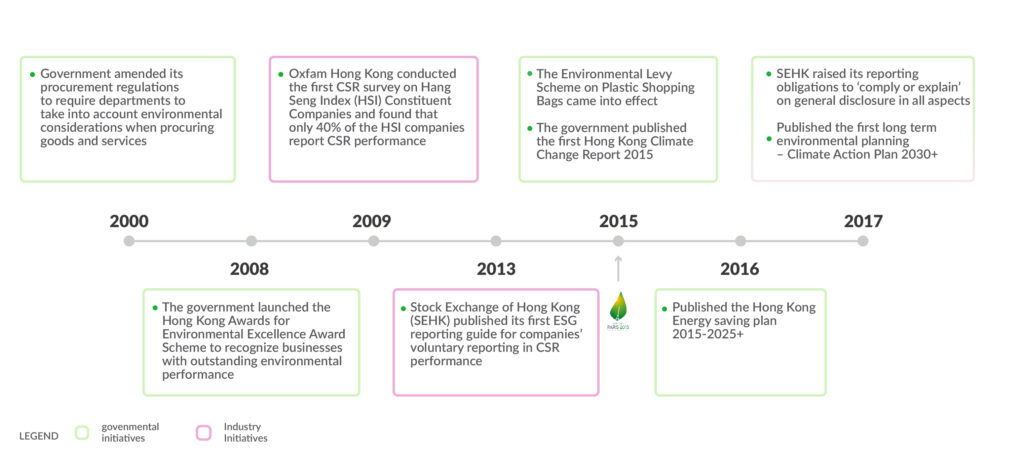
Hong Kong’s sustainable development effort has been catalyzed by the Paris Agreement, which was signed by China in 2015.
Rated by the coverage and magnitude of impact, hereunder are four initiatives that are considered as major milestones of Hong Kong’s sustainability effort:
- Climate Action Plan 2030+,
- ESG Reporting as a Listing Rule under Stock Exchange Hong Kong (SEHK),
- Green Procurement Initiative by the Hong Kong Government, and
- Hong Kong Awards for Environmental Excellence (HKAEE).
Climate Action Plan 2030+
To fulfill China’s obligations under the Paris Agreement, Hong Kong launched the Climate Action Plan 2030+ which outlines the roadmap for the city to contribute to local and national carbon reduction.
The Plan adopted the 4Ts operational framework (i.e. timeline, transparency, targets and together) in setting Hong Kong’s climate change agenda, and the result will be reviewed every 5 years to align with the submission timelines under the Paris Agreement.
Initiatives proposed in the plan are categorized into four approaches (i.e. target, mitigation, adaptation and resilience) with detailed actions illustrated as follow:
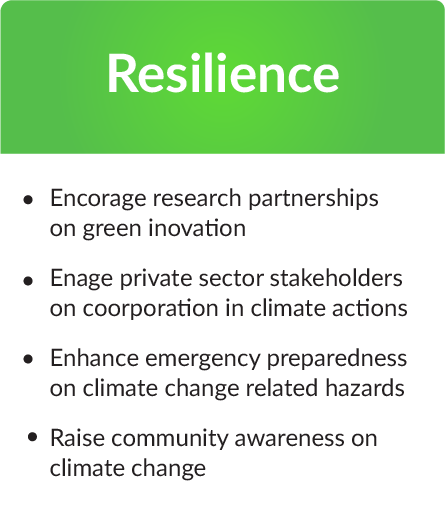
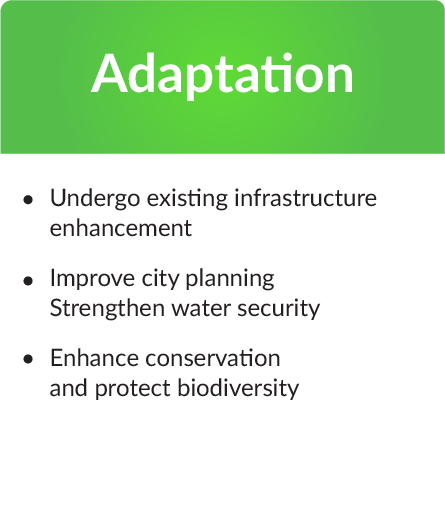
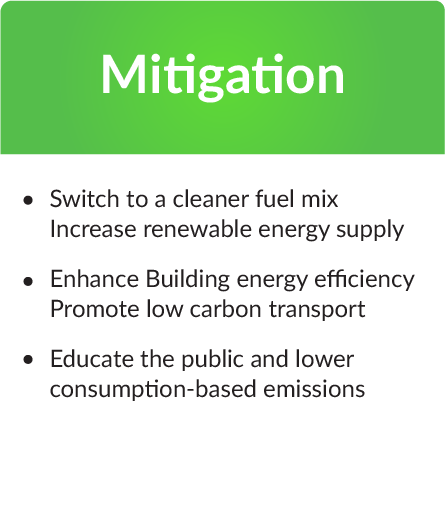
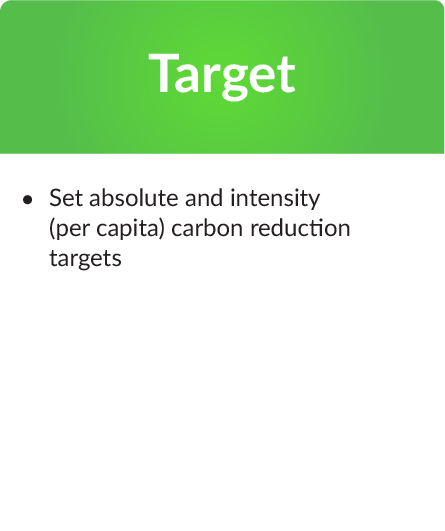
Highlight of the Climate Action Plan includes the newly announced carbon reduction targets, which included a 65%-70% per capita carbon reduction by 2030 against the 2005 baseline. The target is more ambitious that the China’s national target.
The Plan also discusses further on how the building sectors could contribute to the reduction targets as per the Energy saving plan 2015-2025+ published in 2015, and how better urban planning could improve transport energy efficiency and reduce roadside carbon emission.
A number of conceptual initiatives are also brought up in the plan, such as developing green financial products, feed-in tariff and renewable energy certificates for local energy market, and potential collaboration with China on the national carbon emissions trading scheme.
ESG Reporting as a Listing Rule
The Stock Exchange of Hong Kong Limited (SEHK) amended the Listing Rule and released the Environmental, Social and Governance (ESG) Reporting Guide in 2015. All SEHK listed companies are required to publish the management approach and performance of their material ESG aspects following the Guide for financial years commencing on or after 1 January. Divided into two Subject Areas – Environment and Social, the Guide outlines 11 Aspects under the themes of environment, employment and labor practices, operating practice, and community. The EcoVadis Methodology is able to cover over 90% of these reporting Aspects.
Green Procurement Initiative by the Hong Kong Government
Green procurement has been practiced by the Hong Kong Government since early 2000s. Bureaux and departments are required to adopt a set of green specifications as mandatory requirements in the tender specifications for the purchase of common user items (i.e. items that are available on the market with adequate models and quantities in supply). While there is no mandatory green procurement policy for the private sector yet, to encourage their active participation, the Hong Kong Government has set up a dedicated information portal. The portal encompasses green specifications of approximately 150 procurement items, best practice examples, as well as useful information on overseas and local environmental labelling schemes and relevant guidelines and resources.
Hong Kong Awards for Environmental Excellence
The Hong Kong Awards for Environmental Excellence (HKAEE) is one of Hong Kong’s most recognized and comprehensive environmental awards organized by the Hong Kong Environmental Campaign Committee. With an aim to encourage better environmental management and recognize outstanding environmental performance of organizations, the Award assesses the “Eco-Business Model” of organizations with foci on Green Leadership, Partner Synergy and Program and Performance, attracting over 1,000 local and international companies to participate each year since its launch in 2008.
While we can see some momentums for the CSR development in Hong Kong in recent years, it is still early to say that the city has brought sustainability into full play. With the implementation of the above CSR initiatives and the consumers’ pressing demand on responsible business and sustainable products, we shall foresee more and more corporations to engage in sustainable initiatives and develop a CSR strategy for their business activities.
Authors: Ding Li & Gary Lee, CSR Analysts at EcoVadis
Continue reading:
From Tianjin To Beijing: CSR Rising On The Agenda For Supply Chains In China
About the Author
Follow on Twitter Follow on Linkedin Visit Website More Content by EcoVadis EN






















